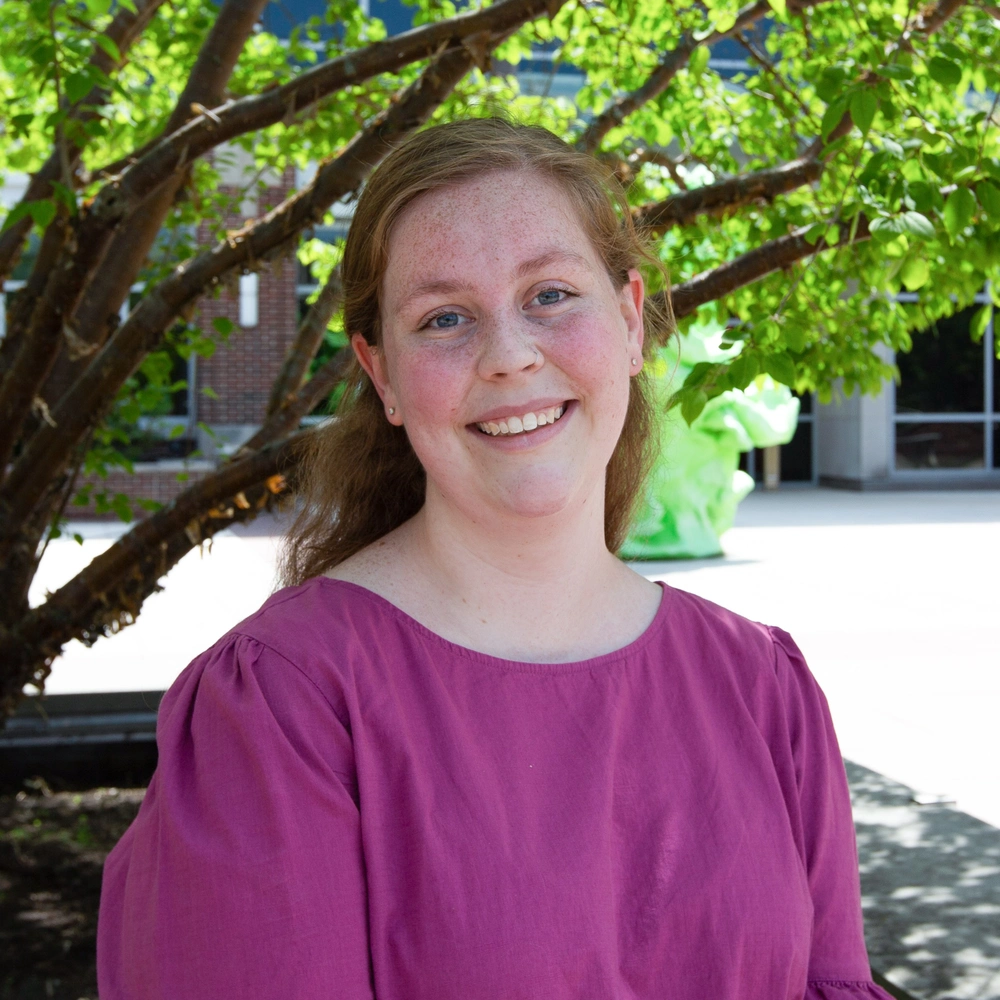
The American Chemical Society has awarded Rebecca Ulrich of the University of Illinois Urbana-Champaign the 15th Irving S. Sigal Postdoctoral Fellowship for 2024–2026. Ulrich will conduct her fellowship studies with Deborah Hung of the Broad Institute in Cambridge, MA, starting in September.
Ulrich is a PhD student advised by Prof. Paul Hergenrother, Kenneth L. Rinehart Jr. Endowed Chair in Natural Products Chemistry, and Professor of Chemistry. Ulrich said she is grateful to be nominated for the award and selected the ACS winner and excited to continue working in the infectious disease space with Professor Hung at the Broad Institute of Harvard and MIT.
“My postdoctoral work will focus on chemical-genetic approaches for tuberculosis drug discovery and working with the PROSPECT technology developed in the Hung lab for rapidly identifying and validating new targets in Mycobacterium tuberculosis,” Ulrich said. “I am excited to expand my skillset into genomics, molecular biology, and bioinformatics.”
The Sigal fellowship provides two years of support in the amount of $85,000 per year. The fellowship is awarded to a PhD candidate or recent PhD graduate who is pursuing research at the interface of chemistry and biology.
Ulrich joins an impressive group of former Sigal fellows, including Illinois chemistry Professor Lisa Olshansky, who was a 2016-2018 recipient.
Hergenrother said he is very happy for Ulrich.
“Seeing the great names of the previous recipients, including our own Prof. Olshansky, reinforces the bright future for Rebecca,” he said, adding that Ulrich has become a true expert at antibiotic drug discovery and efflux of antibiotics from bacteria.
“She has made multiple contributions to several important discoveries and publications, including our recent finding of a novel antibiotic that spares the gut microbiome. I am very excited for Rebecca to continue her training at the Broad Institute, and I can’t wait to see what she does in her independent career,” Hergenrother said.
Ulrich said the resources and opportunities for collaboration at the U. of I. are unmatched, which is what originally attracted her to the chemistry PhD program.
“And that is what has enabled me to tackle big and exciting scientific questions, collaborate widely, and explore different areas of chemical biology and hone my interests,” she said. “And throughout my PhD, Paul Hergenrother has been incredibly supportive of me, helping me identify opportunities for presenting my research at conferences and write about my work for grant and fellowship applications and publications. And his support was pivotal in receiving this fellowship.”
Ultimately, Ulrich said she wants to run her own research lab focused on tuberculosis drug discovery and TB chemical biology in an academic setting or at the National Institutes of Health or another government research facility.
“TB is such a nasty disease with limited treatment options that are dwindling due to the antimicrobial resistance crisis, and I think the field is ripe for collaborative work to understand the disease, improve treatment options, and improve access to lifesaving medications,” she said.
According to ACS, Dr. Irving S. Sigal was a talented and promising research chemist who was one of the pioneers in applying site-directed mutagenesis to study the structure and function of enzymes and proteins. In 1995, his widow, Dr. Catherine T. Sigal, provided funding through the American Chemical Society to establish a postdoctoral fellowship in his memory and advance research at the chemistry and biology interface where Dr. Sigal’s seminal work made critical advances.